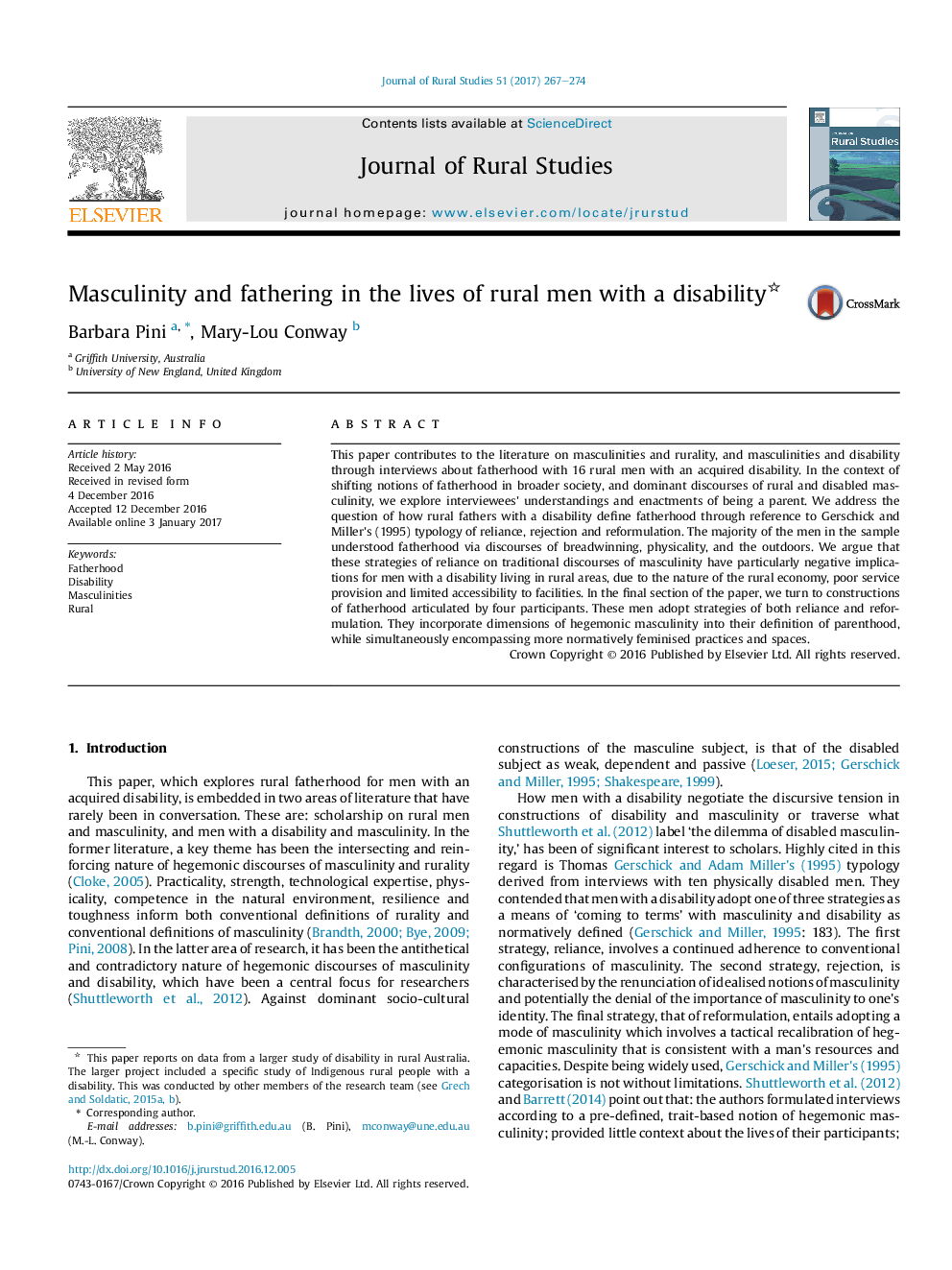| Article ID | Journal | Published Year | Pages | File Type |
|---|---|---|---|---|
| 6460109 | Journal of Rural Studies | 2017 | 8 Pages |
â¢Addresses the paucity of research on disabled men and fathering.â¢Draws on Gerschick and Miller's (1995) typology of reliance, rejection and reformulation.â¢Identifies strategies of reliance in relation to employment and the outdoors, physicality and sport.â¢Examines narratives of four men who demonstrate strategies of both reliance and reformulation.
This paper contributes to the literature on masculinities and rurality, and masculinities and disability through interviews about fatherhood with 16 rural men with an acquired disability. In the context of shifting notions of fatherhood in broader society, and dominant discourses of rural and disabled masculinity, we explore interviewees' understandings and enactments of being a parent. We address the question of how rural fathers with a disability define fatherhood through reference to Gerschick and Miller's (1995) typology of reliance, rejection and reformulation. The majority of the men in the sample understood fatherhood via discourses of breadwinning, physicality, and the outdoors. We argue that these strategies of reliance on traditional discourses of masculinity have particularly negative implications for men with a disability living in rural areas, due to the nature of the rural economy, poor service provision and limited accessibility to facilities. In the final section of the paper, we turn to constructions of fatherhood articulated by four participants. These men adopt strategies of both reliance and reformulation. They incorporate dimensions of hegemonic masculinity into their definition of parenthood, while simultaneously encompassing more normatively feminised practices and spaces.
